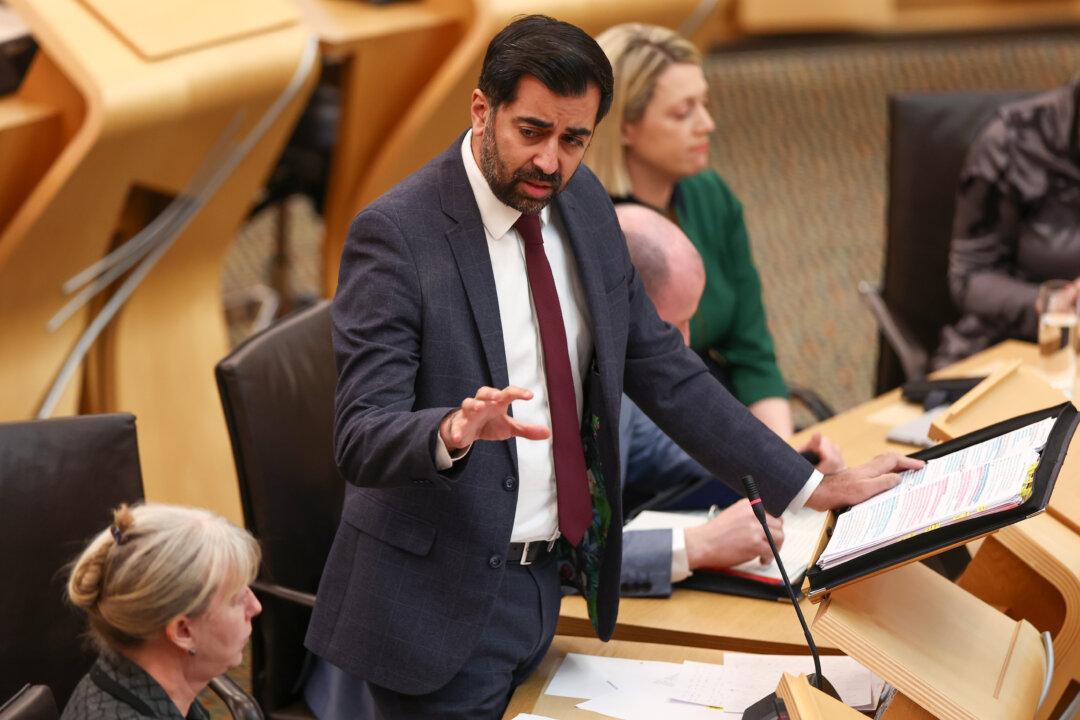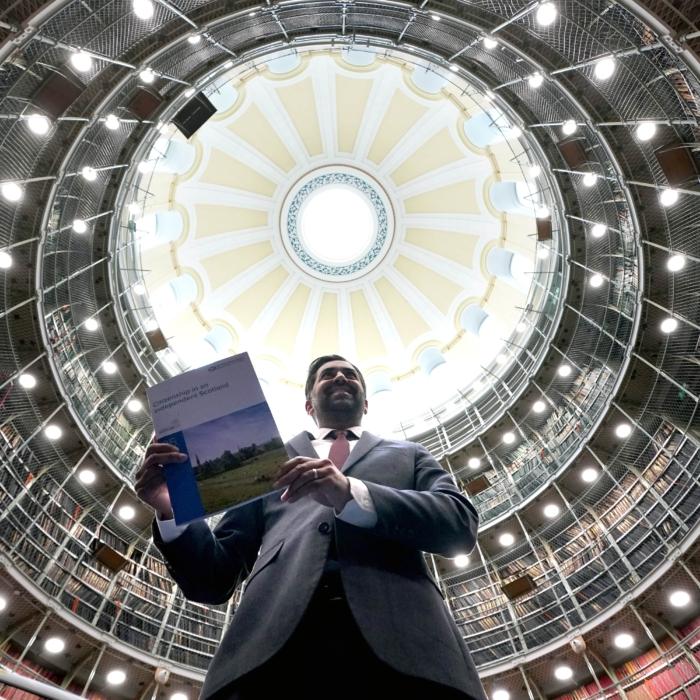Scotland’s hate crime law risks having a “chilling effect” on freedom of speech, the head of complaints at the country’s official police board has warned.
On Thursday, speaking at a Scottish Police Authority meeting, Katharina Kasper, the chairwoman of the Scottish Police Authority’s complaints and conduct committee, said that “credible voices across the judicial sector and human rights organisations” do not consider the legislation’s freedom of speech safeguards are sufficient.
The Scottish National Party’s bill, introduced by First Minister Humza Yousaf when he was justice secretary in 2021, is coming into force on April 1.
However, Ms. Kasper said that there are concerns that “by the time an allegation is made and an investigation starts, the process itself can become a punishment which may have a chilling effect on freedom of expression.”
Hate Crime Law
The controversial new hate crime law, described as “dangerous” by free speech activists and MPs, is set to come into effect next month.The law creates a new crime of “stirring up of hatred offences” for protected characteristics, including “age, disability, religion, sexual orientation, and transgender identity.”
The act has been described as “dangerous,” and that it could see people prosecuted in their homes, by a range of free speech groups and Scottish Conservative MPs.
Despite being inactive, Police Scotland has been readying itself to implement the act by extensive hate crime training.
Training
In response, a spokeswoman for Scottish Police told The Epoch Times by email that Chief Constable Jo Farrell was “very clear” during her update to the Scottish Police Authority Board that “officers will apply the law in a measured way, using discretion and common sense.”She also provided a transcript of what Ms. Farrell said at the Scottish Police Authority meeting.
“We’re a rights-based organisation and our officers balance human rights against individual laws every single day, and this new hate crime act is no different. In fact it contains a specific reference to the protections people have around freedom of expression,” said Ms. Farrell.
She claimed that what “the legislation says and the training reinforces is that somebody’s view, while you might not like it or agree with it, does not become a criminal offence.”
“Police Scotland is used to enforcing new legislation, supporting our officers, providing them with the training and operational guidance they need to apply the law in a measured way using their discretion and common sense,” she added.
She said that “our training reflects all aspects of the act and has reminded officers of our human rights obligations,” and that “we have always taken hate crime seriously and are committed to investigating complaints, and we will continue to do so.”
“Hate crime is utterly deplorable, can cause deep psychological harm, and victims are often already vulnerable,” she added.
The Scottish Government did not want to comment.
It has claimed before that “there are protections in the new act for individuals’ rights in respect to freedom of expression for the new stirring up hatred offences,” and that hate crime is “behaviour that is both criminal and rooted in prejudice and can be verbal, physical, online, or face-to-face.”







